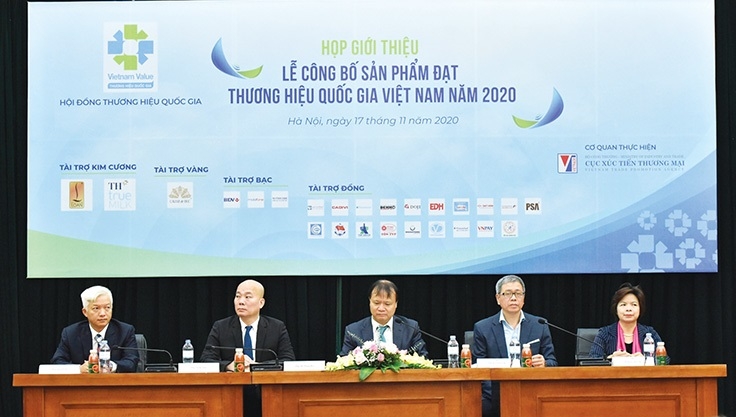Vietnam more suitable for sturgeon products
 |
| Le Anh Duc-Chairman, Board of Directors Vietnam Sturgeon Group JSC |
Siberian sturgeon and sterlet appeared in Vietnam in 2007, when Ha Quang JSC cooperated with Russian experts to hatch their eggs here and successfully bred both species at Tuyen Tam Lake in the Central Highlands province of Lam Dong.
In November that year, Ha Quang became a part of Vietnam Sturgeon Group from Lam Dong’s Dalat city, which began raising four sturgeon species from 2008, adding beluga and Russian sturgeon, which is also known as diamond or Danube sturgeon, at Da Mi Lake in the central province of Binh Thuan.
By 2008, the average temperature of the lake was only 30.5°C, but more than 20,000 sturgeon survived, ate well, and gained weight as required. Two years later, the production of Vietnamese sturgeon reached around 1,000 tonnes, more than the initial estimate. At that time, the sturgeon itself and its caviar was meant for direct exports to Japan, Russia, and the United States.
Despite this initial success, sturgeon farming has not been an easy endeavour. Sturgeons have much higher demand to their environment than other fish species, so the company bred many broodstock to select appropriate fingerlings for the Vietnamese environment.
In addition, the company also chose open lake surfaces with sufficient water flows which were regularly checked and assessed. Moreover, Vietnam Sturgeon began producing its own fish feed with a regulated and thoroughly tested formula, ensuring a healthy nutrition for its sturgeon.
All of these efforts led to a higher yield of fish eggs in a shorter time than possible in nature, which built up our group’s confidence.
 |
| Vietnam Sturgeon Group, which is coping well through the pandemic, is part of the Vietnam Value Programme |
After 13 years of development, the company has had certain successes in supplying sturgeon meat and caviar to the domestic market. Each year, one facility in Dalat provides the market with 1.5 million fingerlings and more than five tonnes of commercial fish. Moreover, achievements in research and technology, as well as optimised large-scale farming processes and breeding and feed sources, have helped the company to further adjust the prices of its products.
Luckily, the pandemic has not affected sturgeon farming much. During the first 10 months of this year, the company’s products sold even better, and prices of both fish and caviar increased.
In the next few years, Vietnam Sturgeon Group will continue to research and optimise costs to offer its products at reasonable prices to the local market. Next year, the company already expects a production output of about 50-70 tonnes and also plans to offer black caviar to the market.
Black caviar has long been recognised as a delicacy, and global supply is estimated at only 70 tonnes per year, mainly coming from Russia. This type of caviar is often offered at 5-star hotels and high-class restaurants, with prices reaching about VND25 million ($1,000) per kilogramme.
While the market potential is huge, the biological limitations for the production of sturgeon and its caviar are limited, as wild fish stocks have been exploited to exhaustion. Today, the global output for wild stock sits at only 100-125 tonnes, equivalent to 3 per cent of past ones.
At the same time, the supply of black caviar from the Caspian Sea and the Russian Vonga River is also narrowed, each year by 3,000-3,500 tonnes, with global output for black caviar amounting to just about 120-125 tonnes.
Foreseeing the possible exhaustion of wild fish stocks, since 1998, wild sturgeon has been protected by strict regulations of the United Nations’ Convention on International Trade in Endangered Species, which in turn, fuelled interest and investment in sturgeon farming.
For instance, the Italian government has since promoted industrial sturgeon farming that led to the country’s current position as one the largest suppliers for farmed sturgeon.
Meanwhile, Vietnam Sturgeon believes that, with the expansion of its farming system, the company can not only meet local demand in the next decade but also expand its exports further. Currently, the company has around 78,000 fish, capable of producing around 100 tonnes of fish eggs.
Although the market’s potential is high, a low sales volume renders operations ineffective, which is the reason why Vietnam Sturgeon Group has not yet been exporting much fish and caviar. So far, some test exports to Europe, Japan, and Russia have also not achieved the desired results.
The recognition by the Vietnam Value Programme is therefore an important milestone for Vietnam Sturgeon Group to showcase its quality and gain prestige. The Ministry of Industry and Trade’s accompanying of businesses, along with the Trade Promotion Agency, is a long-term process, including an objective and careful assessment.
Vietnam Sturgeon Group had to reform a number of management processes, as well as administrative and financial regulations, to meet the criteria of the programme and ultimately receive recognition this year.
Vietnam – an emerging market with a great demand for new products – is now a market that seems more than suitable for black caviar. The fact that Vietnam Sturgeon Group was chosen in this year’s Vietnam Value Programme reaffirms the trust customers have in the business and is promoting the popularity of its products.
What the stars mean:
★ Poor ★ ★ Promising ★★★ Good ★★★★ Very good ★★★★★ Exceptional
Related Contents
Latest News
More News
- Hanoi farms over 100 pomelo producing areas (December 05, 2024 | 18:05)
- Vietnam ranks among top three global shrimp exporters (August 07, 2024 | 16:13)
- Unlocking the potential of Vietnamese medicinal herbs (October 05, 2023 | 11:29)
- Hanoi promotes trade, investment, tourism cooperation with central provinces (July 10, 2023 | 09:57)
- VICO Fresh coconut creates buzz at trade show (May 26, 2023 | 20:20)
- Vietnam strengthens green branding (April 20, 2023 | 17:18)
- Increasing trade connectivity between Hanoi and localities (November 24, 2022 | 18:00)
- Vietnam recognises 325 products as national brands (October 26, 2022 | 17:13)
- Brand Finance Forum 2022: Honouring Vietnam’s 50 most valuable brands in 2022 (September 22, 2022 | 09:32)
- Ample opportunities for Vietnamese businesses in trade (May 20, 2022 | 07:00)

 Tag:
Tag:




















 Mobile Version
Mobile Version